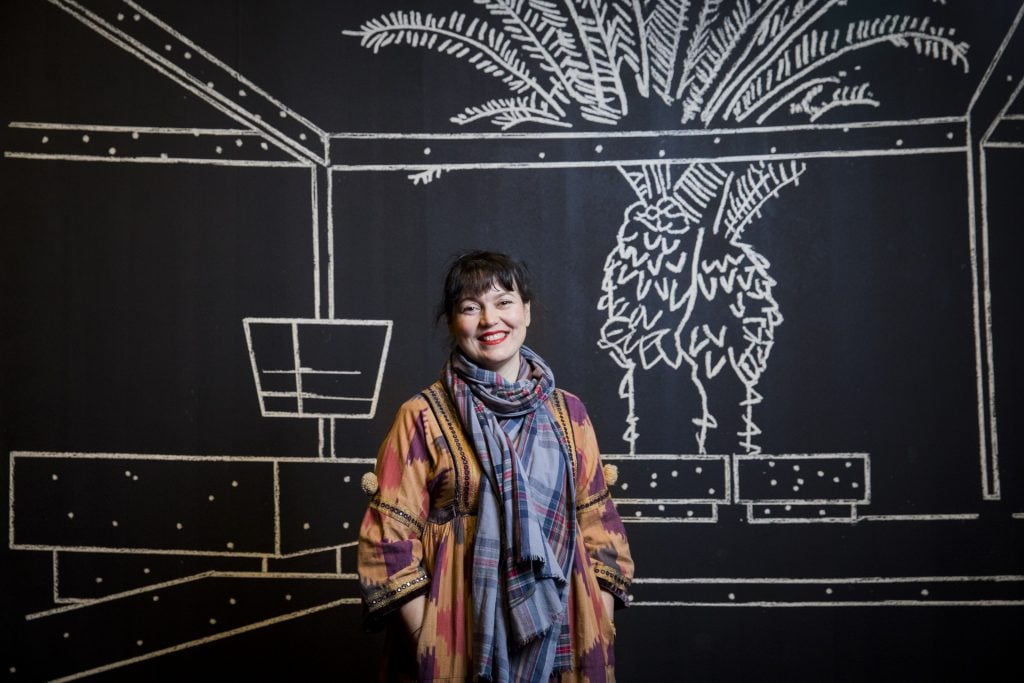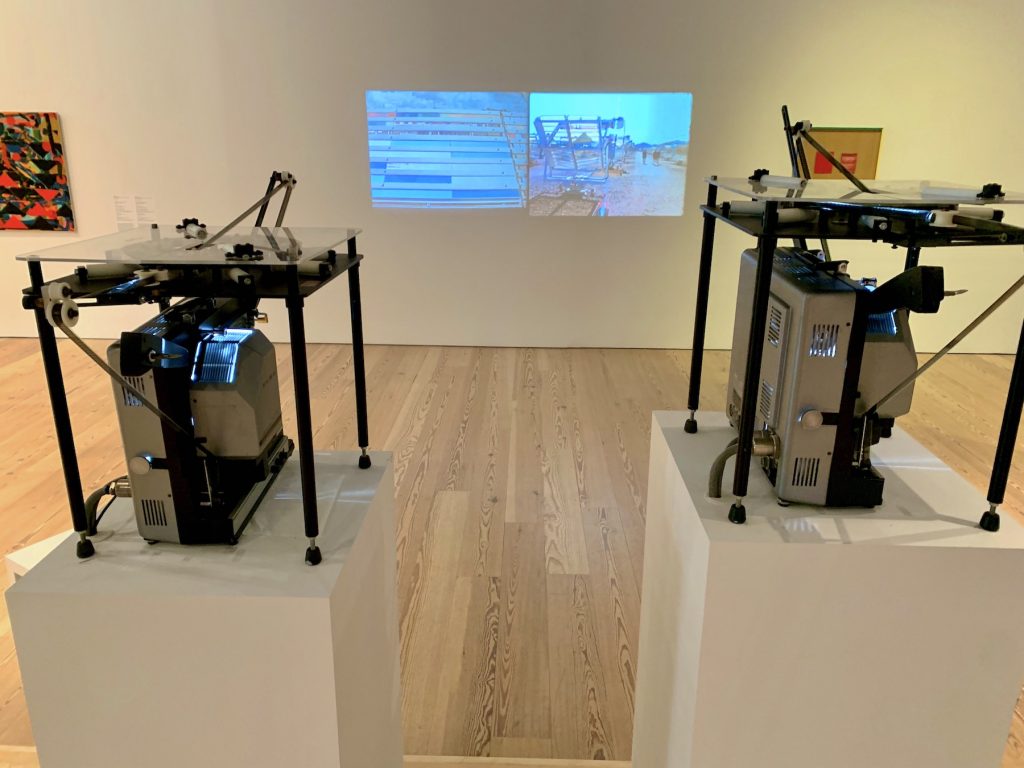Art World
French-Moroccan Artist Yto Barrada Tapped to Represent France at 2026 Venice Biennale
The artist's incisive work focuses on geo-political issues.

The artist's incisive work focuses on geo-political issues.

Jo Lawson-Tancred

French-Moroccan artist Yto Barrada has been chosen to represent France at the 61st Venice Biennale in 2026. Though she has worked in many mediums, she is best known for her abstract textiles and for her photography and film works, all of which become a means to address wider geo-political issues like the climate crisis, immigration, and post-colonialism.
The selection committee organized by the Institute Français said, in a press statement, that it chose Barrada for how her practice “unites various artistic and social communities in search of a new utopia.” It described her as “an iconoclastic researcher, a borderless, and holistic artist.”
Barrada’s exhibition will follow this year’s well-received installation by Julien Creuzet, which closes with the rest of the biennale this Sunday, November 24.
Born in Paris in 1971, Barrada mostly grew up in Tangier, Morocco, which has been the subject of major photography series like A Life Full of Holes (1998), which studied the transitory existence of migrants attempting to flee to Europe, and Iris Tingitana Project (2007). As a student, Barrada returned to her birthplace to study history and political science at the Sorbonne. Soon after graduating, she enrolled at the International Center of Photography (ICP) in New York, where she is still partly based.
This latest news comes straight off the back of “Le Grand Soir,” a large-scale outdoor exhibition at MoMA PS1. The eye-catching, geometric constructions made of colorful concrete cubes invited museum visitors to climb and sit. If this piqued their interest, they were welcome to deep dive into the socio-political meaning of the show’s title, a French term for a significant night of revolution and justice. In 2021, Barrada also had a solo show, “The Raft,” at MoMA.
This year, the artist also returned to her alma mater ICP for a solo exhibition titled “Part-Time Abstractionist.” The highlights on view were Blockhead! Toy (2017), prints that contain a cluster of silhouettes of children’s toys, and the photogram series Bonbon (2016-17), of colorful candy wrappers arranged in into compositions of surprising subtlety.
In 2022, Barrada was included in the Whitney Biennial, where she exhibited A Day Is a Day (2022). The diptych film, streamed from large projects propped up in the gallery space, documents the activities of two companies in Miami and Phoenix that analyze the effects of the climate on textile and colors, using this rate of decay as a measure for the passing of time.

Yto Barrada, A Day Is a Day (2022). Photo by Ben Davis.
Barrada made headlines earlier in 2024 for pulling her work from the Barbican’s survey show “Unravel: The Power and Politics of Textiles in Art” at the Barbican in London in protest of the institution’s decision to cancel a lecture by Pankaj Mishra for fear he would address Israel’s war in Gaza. She was one of several artists to do so.
“We cannot take seriously a public institution that does not hold a space for free thinking and debate,” Barrada said at the time. “However challenging it might feel to some staff, board members, or anxious politicians.”
In addition to her own practice, the artist has recently founded The Mothership on the coast of Tangier, intended to be “a place to conjure pan-African eco-feminist practices into being.” The plot of land has become a place for artists to meet with botanists and ecologists to work together on the production and use of natural dyes, with an emphasis on traditional Indigenous techniques. In 2006, Barrada also co-founded the non-profit Cinémathèque de Tanger, an art house movie theater in Tangier, which has become a cultural hub of film artists and enthusiasts alike.
Just a few other countries have so far announced their artists for the 61st Venice Biennale, including Canada, Estonia, and Ireland.